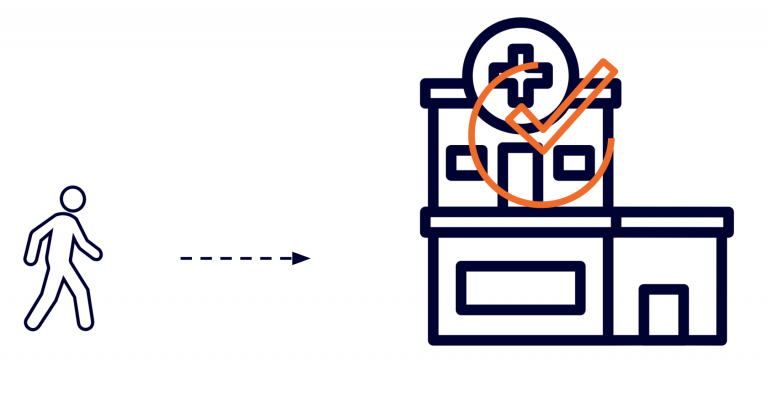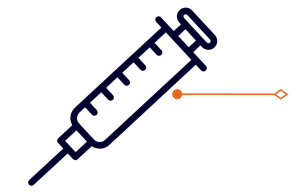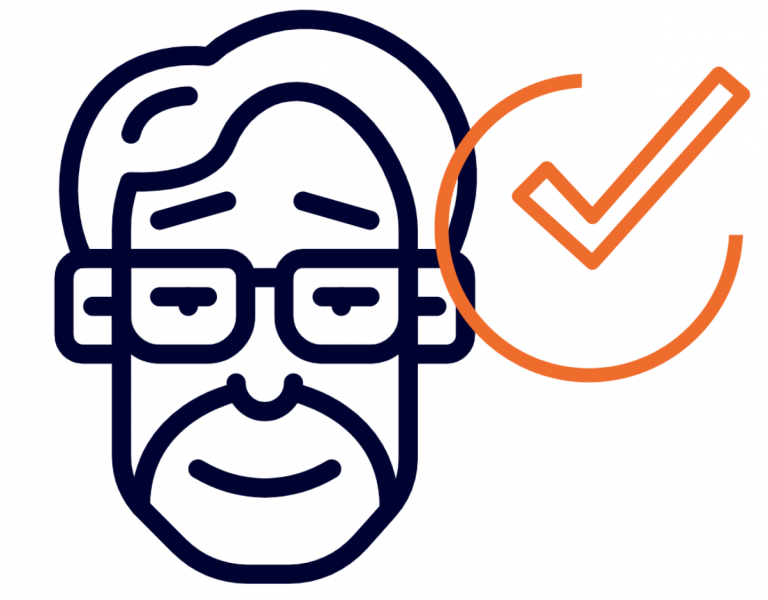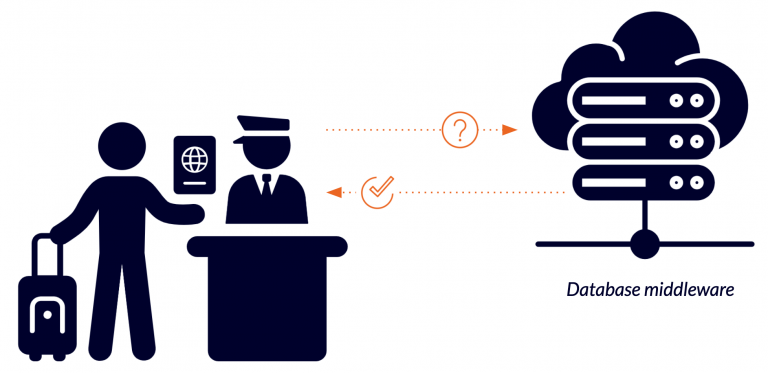In response to the health and economic crises brought on by Covid-19, many governments and businesses have turned to blockchain technology to not only continue providing goods and services, but to also build resilience into their plans for recovery.
Teams around the world have been coming together to design and implement an increasing range of blockchain-based solutions—from the more obvious applications, such as supply chain management, to the more controversial, including the concept of “immunity passports.”
In theory, an immunity passport—also referred to as an immunity visa or certificate, recovery certificate, or release certificate—would attest that its holder is immune to Covid-19 and is therefore able to travel or return to work. Immunity would be confirmed by either taking an antibody test that indicates you contracted and have since recovered from Covid-19 or, eventually, by getting a vaccination.
While some countries have already begun to test out digital immunity passports, there has been lots of pushback on the idea, most notably from the World Health Organization. The biggest criticism of immunity passports is that, currently, there is still not enough evidence on how the presence of Covid-19 antibodies affects immunity to a second infection.
But with the jury on immunity passports still out, the specific concept of a blockchain-based immunity passport remains an interesting use case to take a closer look at. First off, it could very well become a necessary tool in the medium- to long-term handling of Covid-19, or perhaps a completely different global epidemic. Secondly, it could serve as one of the first significant use cases to truly demonstrate the power of blockchain technology beyond cryptocurrencies.
So what could the process of designing and implementing a blockchain-based immunity passport actually look like?
Before we dive into our thought experiment, it’s worth taking a quick pause to consider why blockchain technology would be so integral to the delivery of an immunity passport.
Using blockchain technology is the best way to ensure that every step in delivering a Covid-19 immunity passport is secure, immutable, and auditable—such built-in trust will be necessary for an initiative that not only handles an individual’s personal data, but also dictates whether or not that individual can travel, work, or access other goods and services.
First, let’s identify what specific elements of this immunity passport journey need to be trusted:
Second, let’s outline the stakeholders:
For our thought experiment, all stakeholders would be represented as digital identities within an integrated, blockchain-based ecosystem, such as the iov42 global platform.
Third, let’s establish the independent variables:
Instances of each of these variables can be represented as a unique asset within our integrated, blockchain-based ecosystem.

This is our main character, Victor.
Like most of us for the better part of 2020, Victor has been cooped up inside. Early on during lockdown, Victor was sick with what he suspects to have been Covid-19, but was unable to get tested at the time. On top of that, he hasn’t been able to see his elderly mom in months because she lives across the border. Much to Victor’s delight, his home country has rolled out an immunity passport initiative, opening up the opportunity to travel and see his mom. He is eager to take an antibody test and see if it comes back positive, which would qualify him for the passport.

Victor heads down to the clinic that has been appointed by the relevant health authority as an official testing site. In preparation for his visit, Victor was instructed to set-up a verified digital identity that is stored on the integrated blockchain-based platform.
To ensure the integrity of each antibody test—and vaccine, when they’re available—they have been designed in an approved laboratory, produced by an approved manufacturer, and transported by an approved carrier. Each test’s journey along the supply chain is tracked and stored on the platform.

Once the clinician performs the test on Victor, that digital representation of that specific test gets the following characteristics “attached” to it, which will also be represented and stored on the platform:

Victor should receive the test results within a few days of taking it. If the results are positive, Victor will be notified that he qualifies for an immunity passport. Alternatively, if the results come back negative, the clinic could invite Victor back for the Covid-19 vaccine.
 Whether Victor tests positive for Covid-19 antibodies or is able to get a Covid-19 vaccination, he should theoretically be granted an immunity passport that clears him to finally visit his mom after all these months. He books the first plane out to visit her.
Whether Victor tests positive for Covid-19 antibodies or is able to get a Covid-19 vaccination, he should theoretically be granted an immunity passport that clears him to finally visit his mom after all these months. He books the first plane out to visit her.
At border control, Victor encounters the last stakeholder in our immunity passport journey—the appointed enforcement agency in charge of verifying the validity of Victor’s immunity passport. Upon scanning Victor’s travel documents, the enforcement officer will query a database that has access to all of the tests and/or vaccinations and their respective identities that are stored on the integrated blockchain-based platform.

The enforcement officer will be able to check Victor’s identity against the database and verify that:
When the officer successfully validates Victor’s immunity passport, Victor will be free to continue his journey and travel to see his mother. Bon voyage, Victor!
Because the iov42 platform is built around three, core building blocks—digital identities, digital assets, and digital certificates—it is uniquely positioned to support the immunity passport process envisioned above. Identity modeling ensures that all of our stakeholders are known and auditable, while unique asset modeling, claims, and endorsements facilitate the verification and validation of each test’s authenticity. Furthermore, the ledger’s immutability allows for the creation and storage of complete audit trails of each test’s journey from creation to result processing, guaranteeing the most secure and efficient implementation of an immunity passport.
So now we know how one version of a blockchain-based immunity passport could look like. But it’s still important to acknowledge where this solution currently falls short and why the concept of immunity passports is so contentious.
As mentioned earlier, one of the biggest objections is the insufficient evidence on how the presence of antibodies to Covid-19 affects long-term immunity. One study has found that Covid-19 patients showed a significant decrease in the number of antibodies within two to three months of recovery. A different source highlights the fluctuating accuracy of antibody tests depending on the time window between the first detection of symptoms and testing.
Even if the data ultimately elucidates the relationship between antibody presence and immunity, it must be noted that until a tested and approved Covid-19 vaccine is widely available, an immunity passport is a somewhat incomplete solution—only individuals who could prove they had recovered from Covid-19 would have the preferred access to liberties such as travel and employment. The rest of the community would be left without many options to obtain the same freedom of movement, short of attempting to purposefully infect themselves or counterfeiting immunity passports.
Furthermore, with different geographies potentially rolling out different immunity passport processes, an opportunity opens for certain nations to cite inconsistent standards as a basis to advance political agendas to restrict travel to and from other nations.
Widespread deployment of a Covid-19 immunity passport will only make sense when:
If that time comes, blockchain would provide the most suitable technological foundation for establishing a completely integrated, secure, tamper-proof, and auditable health management ecosystem.
Not only would a blockchain-based immunity passport serve as a scalable tool to manage additional waves of Covid-19, it could also be a model for similar solutions to different global epidemics in the future. Moreover, it could kickstart a transition in the healthcare industry to a more decentralized and digital approach, revolutionizing everything from vaccination records to remote medical treatment to emergency health responses.
By submitting your email you consent to receive iov42 newsletters by email. You can unsubscribe at any time. For further information, please see our Terms and Conditions and Privacy Policy
